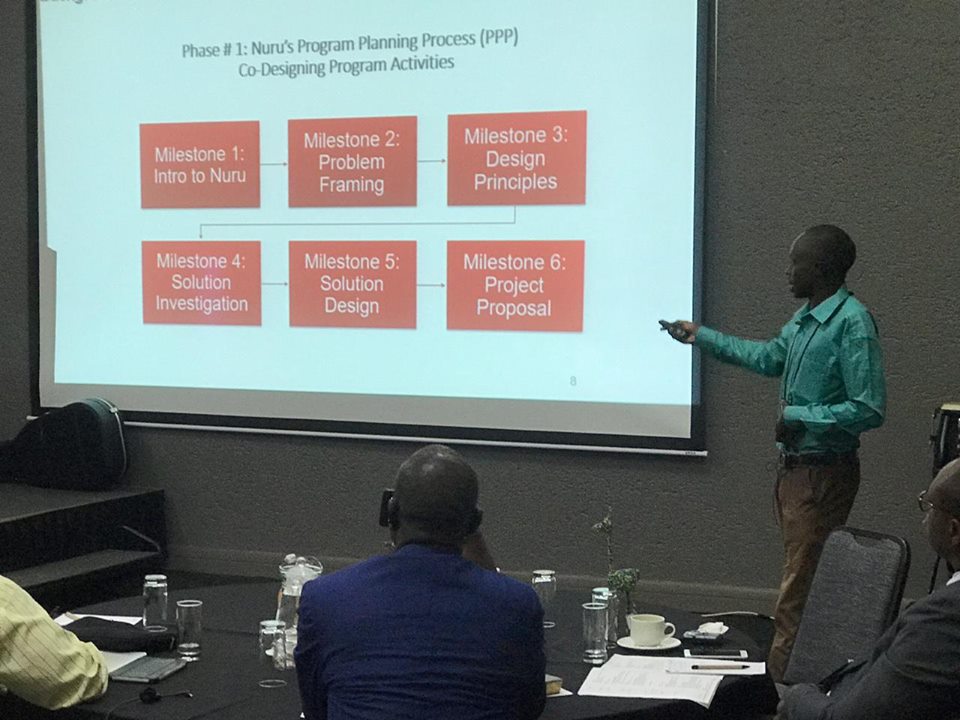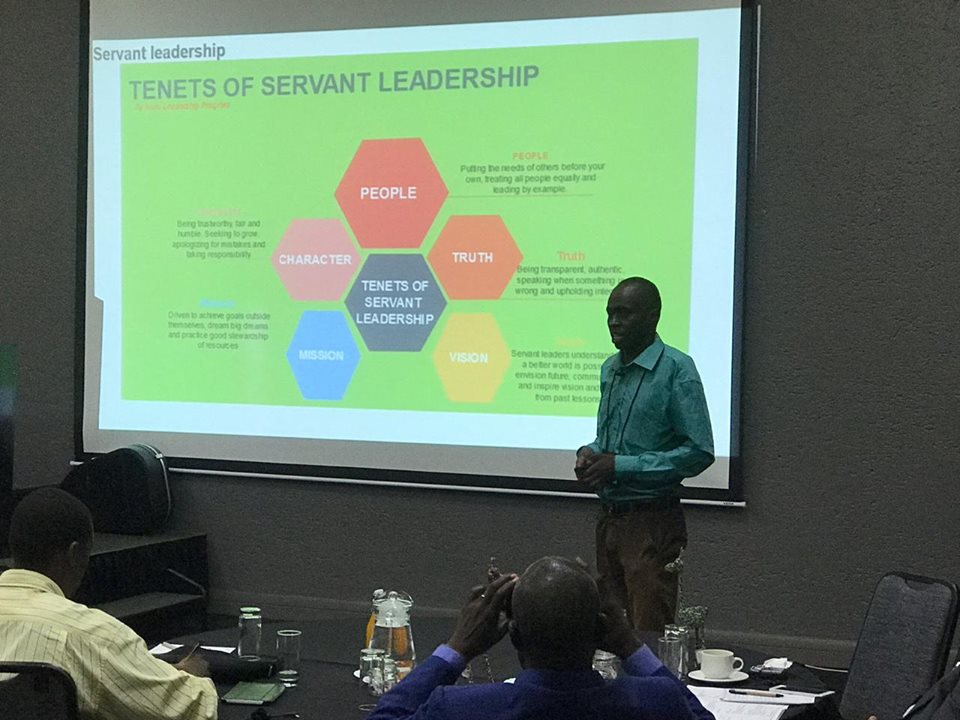In January 2019, The United Methodist Church held its annual conference, “The Church and Agriculture, ” in Johannesburg, South Africa. The conference took place over four days and attendees included both agriculture experts from The United Methodist Church and dozens of their partner organizations. The conference brought together 80 agricultural leaders and innovators from across Africa and focused on improving the link between leadership, community buy-in, and agricultural yields for smallholder farmers. Nuru Kenya’s Leadership Program Manager, George Nyamweya, was invited to present Nuru’s innovative approach to community capacity development. This is a Q&A about his experiences.
This conference focused on agriculture in Africa. What were some of the key lessons learned that can be applied to ending extreme poverty?
Discussions focused on transforming the future of agriculture in Africa, the integrated approach to small-scale agriculture, and the importance of partnerships—all of which are relevant to our work in Kenya. We also discussed some of the major challenges facing African farmers. It was encouraging for me to realize that Nuru Kenya is already working to address some of these challenges. For example, linking cooperatives to markets, implementing climate smart agriculture, supporting dairy projects, and providing training to enable farmers to adapt new planting techniques are all important aspects of our work in Kenya.
Another important theme was the necessity of partnerships to end extreme poverty. We realized that addressing these challenges require all of us to work closely together to leverage our strengths and support our peers. All of the participants saw the value of partnerships, and it reinforced the idea that we’re all in this together. No one person can end extreme poverty, but by working together, we can make a big impact.
What topics did you cover in your presentation?
My presentation, “Servant Leadership in Rural Agricultural Development,” focused on how Nuru leverages servant leadership training to improve agricultural outputs for small-scale farmers. I also touched on how Nuru’s innovative Program Planning Process (PPP) uses local expertise and knowledge to co-design culturally relevant solutions to end extreme poverty. In addition, I described the practical example of how Nuru Kenya has used comics, visuals, and translated content to more adequately meet the capacity development needs of our farmers.
How was your presentation received by the conference attendees?
The participants were inquisitive about all of these topics, and they were particularly intrigued by how Nuru was able to listen to farmers when designing program activities. Most attendees saw the value in community input, but didn’t have clear processes in place to collect it yet. Talking about Nuru’s experience was a real “lightbulb” moment for some of the attendees. Other participants were interested in learning about best practices working with and organizing farmer cooperatives. Overall, most conference attendees wanted to know how leadership and agriculture can complement each other, especially in terms of servant leadership. I was happy to share Nuru’s experience in these areas.
What were the main lessons learned from this conference?
It was inspiring to learn that most organizations were collaborating to address some of the major challenges facing African farmers, such as climate change, access to markets, and community buy-in. It was affirming to be reminded that Nuru Kenya is on the right track as we already address some of these challenges through our leadership trainings, dairy project, integrated programming, and farmer organization support.
In addition to these lessons learned, Nuru Kenya is currently exploring some potential partnerships and learning exchanges with conference attendees. A shared vision, passion, and dedication for ending extreme poverty will help these partnerships blossom into impactful change. I am thankful that I was able to share Nuru’s vision with so many outstanding leaders. It was a tremendous learning experience, and it provided valuable lessons that I hope to apply to my work in Kenya to end extreme poverty.



